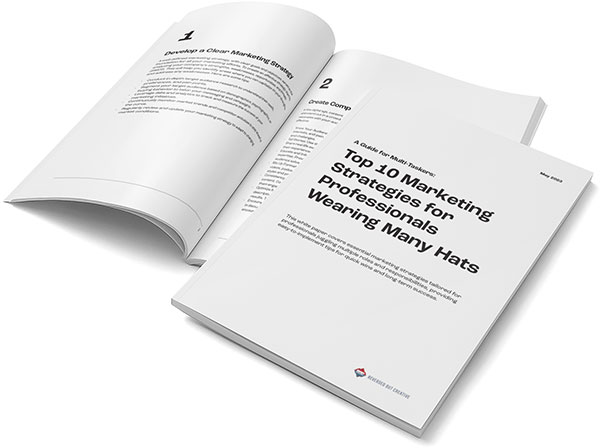
Your logo is the most important piece of marketing collateral you have. It’s usually the first thing that consumers see when they’re looking for your business, and it can make or break their decision to choose your company over another. The same goes for your branding in general: if it looks like an amateur designed it, people will assume that’s how your business runs as well. And while a poor design isn’t going to hurt you right away (unless you’re using social media), there are ways it can hinder long-term growth by making people think less of your brand or even turn them off completely. If your logo is ugly or outdated now—or both—it might be time for a redesign!
You have an ugly logo.
Before you even begin to think about creating a logo, it’s important to understand what a logo is and why it’s an integral part of any brand strategy. A logo is essentially the face of your company—it represents who you are, what services or products you provide, and how those things can be used by consumers. On top of that, logos also act as visual identifiers for brands. A good logo will look professional and polished without being too complicated or overly flashy; at the same time, it should convey all of this information within seconds so that someone can quickly identify what kinds of businesses belong under its umbrella (e.g., Italian restaurants vs. high-end steakhouses). When done well—and when used consistently across all relevant marketing materials—a strong visual identity makes it easier for consumers to recall certain qualities they associate with companies (e.g., “We like cooking out at home” vs “We like fine dining at expensive restaurants”).
So now let’s talk about ugly logos: Why do some companies seem more successful than others? What separates them from their competition? One major factor has everything to do with branding strategy; specifically, how well each respective company implements its chosen style guide across all mediums in order to create cohesive messaging across channels. This includes both pre-launch stages as well as post-launch periods once they’ve been vetted by potential customers through paid advertisements.
You have a logo, but you don’t have a brand.
Your logo is just one piece of a larger puzzle, and it needs to be consistent with the rest of your branding strategy in order for it to be effective.
Your company name, tagline, and messaging should all work together in harmony to create a cohesive brand for your business. When you have all of these elements working together in an integrated fashion, you’ll start attracting more customers and make more money! After all, your logo alone is not your brand.
Your logo and branding are out of date.
You’ve probably heard this before, but it’s true: your logo and branding need to be relevant to your business. They shouldn’t just be a pretty picture or an abstract version of yourself that you thought was cool in 1993. They should also look like something that reflects who your customers are (or could be), who the investors interested in funding your company are, and what employees want to see when they look at you as an employer. If none of those things apply to you, then maybe it’s time for an overhaul—and if they do apply but the designs don’t reflect them well enough, that’s another problem entirely!
If any of these things do apply to you now or will soon (such as opening up a new location), then take some time now so that when it comes time for those changes, the transition is smooth instead of abrupt and confusing for everyone involved: employees included.
Your brand does not tell your story.
A brand is a marketing strategy. It’s a way of communicating with your customer. It’s how you build trust, loyalty, and relationships with people. Unfortunately, many businesses don’t see branding as a part of their marketing strategy—instead, they treat it as an afterthought or something they can take care of later when they have time to get around to it.
The truth is that branding should be one of the first things on your mind when you start building your business because it helps define who you are as an organization and what your company stands for in the marketplace. Branding helps differentiate yourself from competitors and set yourself apart from other companies in the same industry category.
Your logo is just another iteration of a generic concept.
A logo is a visual representation of your brand. It should be unique, memorable, and appropriate for the industry you’re in. A great logo will be recognizable even when shrunken down to size and viewed on a mobile device or low-quality printing method.
A great logo does not just look good on paper; it can also work well as an image for use in digital media like websites, social media profiles, and apps.
Your branding doesn’t look good on social media.
What happens when your logo is hard to read in small sizes? When it’s difficult to read on mobile devices? Or social media? What if your logo doesn’t look good on TV or the web?
These are all questions that need to be answered when designing a brand identity, regardless of what industry you’re in.
Your branding is too confusing.
Your brand should be consistent across all platforms (web, social media, flyers, etc.) so that customers can easily recognize it wherever they see it – even if they’ve never seen it before!
Consistency is key here: if each platform has a different look and feel, then there will be no consistency throughout your entire brand identity. This confuses potential customers because they may not think that they’re actually dealing with one company or person.
Bad branding can hinder your business; here’s how to avoid that.
- Fix your logo. Your logo is the first thing people will see when they visit your site or business, so it needs to make a good first impression. You can use design programs like Adobe Illustrator or Sketch to create a simple image that represents your brand and stick with it across all of your digital spaces, from social media pages to email signatures, and even business cards.
- Create a brand guide. A brand guide is an essential tool for guiding both yourself and anyone who works on behalf of your company when it comes to using the branding in promotional materials, new website designs, advertisements, etc.– and there are plenty of free templates online for creating one! This way everyone knows exactly what goes into each piece of branded content so that nothing looks out-of-place (or worse yet: unprofessional).
- Use a professional designer if necessary! If you’ve tried everything but still feel overwhelmed by logos, fonts, and color schemes, then consider hiring someone who specializes in these aspects full-time; they should be able to provide guidance while keeping costs reasonable too because they usually work within budgets set by their clients.
Conclusion
If you have a bad logo and branding, it’s time to look at ways to improve. In this article, we’ve covered some of the most common reasons why people get frustrated with their brand, and we’ve provided some tips on how you can fix them. If you are looking for help with your business’s branding or logo design, feel free to contact us at Reversed Out Creative.
Contact Us
At Reversed Out Creative, we understand the challenges and opportunities presented by AI disruption. Our team of experts specializes in web design, SEO, graphic design, and digital marketing services. Reach out to us through our contact form to learn more about navigating the evolving job market and embracing the potential of AI. Together, let’s shape a future that combines human ingenuity with the power of AI.
Next Article: Tips That Will Help You Work With A Marketing Agency More Effectively
©2025 Reversed Out LLC. All rights reserved. Privacy Policy.


